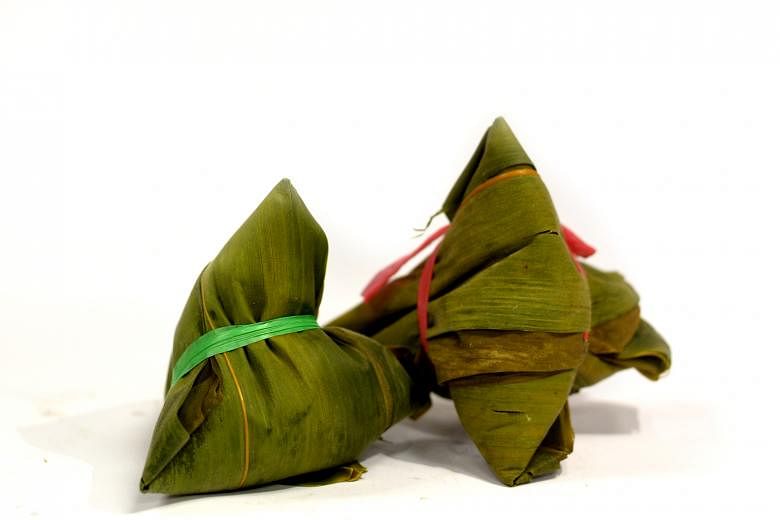The dragon boat festival may be over but concerns over the preparation of rice dumplings have not quite abated.
About two months ago, Mind & Body published a statement from the Agri-Food and Veterinary Authority of Singapore (AVA) on health and safety concerns involving the raffia strings used to tie rice dumplings.
It said that while it understood the public's concerns, the migra- tion of chemicals from plastics (raffia string) to food is significant only when there is direct contact between the food and the plastic.
The risk of chemical contamination of the rice dumplings is very low as the raffia strings used to tie them do not come into direct contact with the rice.
The AVA spokesman said that as the dumplings were cooked in a large volume of water, the concentration of any chemical that may have migrated into the water during the cooking process would be extremely low, due to dilution.
Some readers, however, remained unconvinced.
Retiree Lum Yew Wai, 66, said that while the concentration of chemicals in the water might be low, it is highly likely that the water would be re-used multiple times. This would increase the concentration of chemicals leaching from the raffia into the water for each successive batch cooked.
He said raffia strings are made from recycled plastic and the presence of dangerous chemicals could not be ruled out without tests.
In response to these concerns, the AVA said that it maintained its previous stance that the risk of chemical contamination of the dumplings and the concentration of chemicals in the water were extremely low.
AVA added that as reusing the same water to boil the dumplings may affect the quality, manufacturers typically use the same water only once or twice before replacing it.
It said consumers need not worry as they are not exposed to high concentrations of migrated chemicals from raffia strings long term.
Other readers raised concerns about the use of plastics in general.
In an e-mail to Mind&Body, one reader, who wanted to remain anonymous, said he had observed hawkers at a fishball noodle stall at Revenue House carrying boiling soup in household plastic pails - the type usually used in toilets.
The reader highlighted another stall in a Kopitiam outlet at Novena Square, which he claimed had wrapped a plastic net around the rice in a rice cooker to make it easier to transfer the rice.
Associate Professor Leslie Loo, an expert in chemical engineering and food technology at the Singapore Institute of Technology, said that there were risks in exposing plastics to higher temperatures than what they are designed for.
A common material used in disposable plastic cups is polystyrene, also called styrofoam, which is made of monomer molecules called styrene.
During the production of polystyrene cups, some styrene molecules remain unreacted.
Over time, some of these unreacted styrene molecules can leach out from the polystyrene cup into the liquid in the cup, he said. Research shows that the higher the temperature of the liquid, the more styrene will leach into the liquid.
Prof Loo said that in sufficiently large amounts, styrene affects the gastrointestinal system and central nervous system, resulting in headache and fatigue.
He added that the International Agency for Research on Cancer had listed styrene as "possibly carcinogenic to humans".
He said: "Health effects on individuals should be evaluated carefully since many of the studies on leaching were done outside of Singapore. It is important to conduct such studies on the plastic cups used here before an appropriate assessment on health can be made."
Ms Bibi Chia, principal dietitian at Raffles Diabetes and Endocrine Centre, said there are two other substances added to plastics - bisphenol-A (BPA) and phthalates.
BPA and phthalates are believed to be "endocrine disrupters", which are substances that mimic human hormones and, hence, can interfere with our bodies.
When food is hot, wrapped in plastic or put in a plastic container and microwaved, BPA and phthalates may leak into the food, she said.
Any migration is likely to be greater with fatty foods such as meat and cheese than other foods.
So one should avoid using plastic when eating or heating these foods. Studies show that BPA migration into water increases after repeated use and with increased temperature.
However, Ms Chia said that more studies are needed to determine any link between the use of plastic containers for food and the increased incidence of cancer in Singapore.
AVA said that it regularly tests disposable plastic food containers for possible migration of food packaging chemicals, and products that fail the tests are not allowed for sale.


